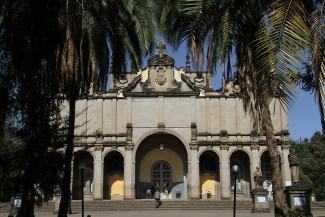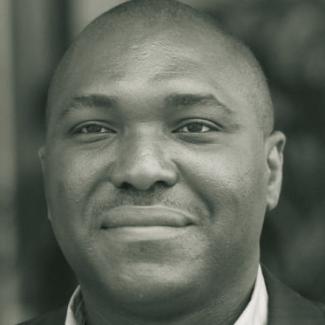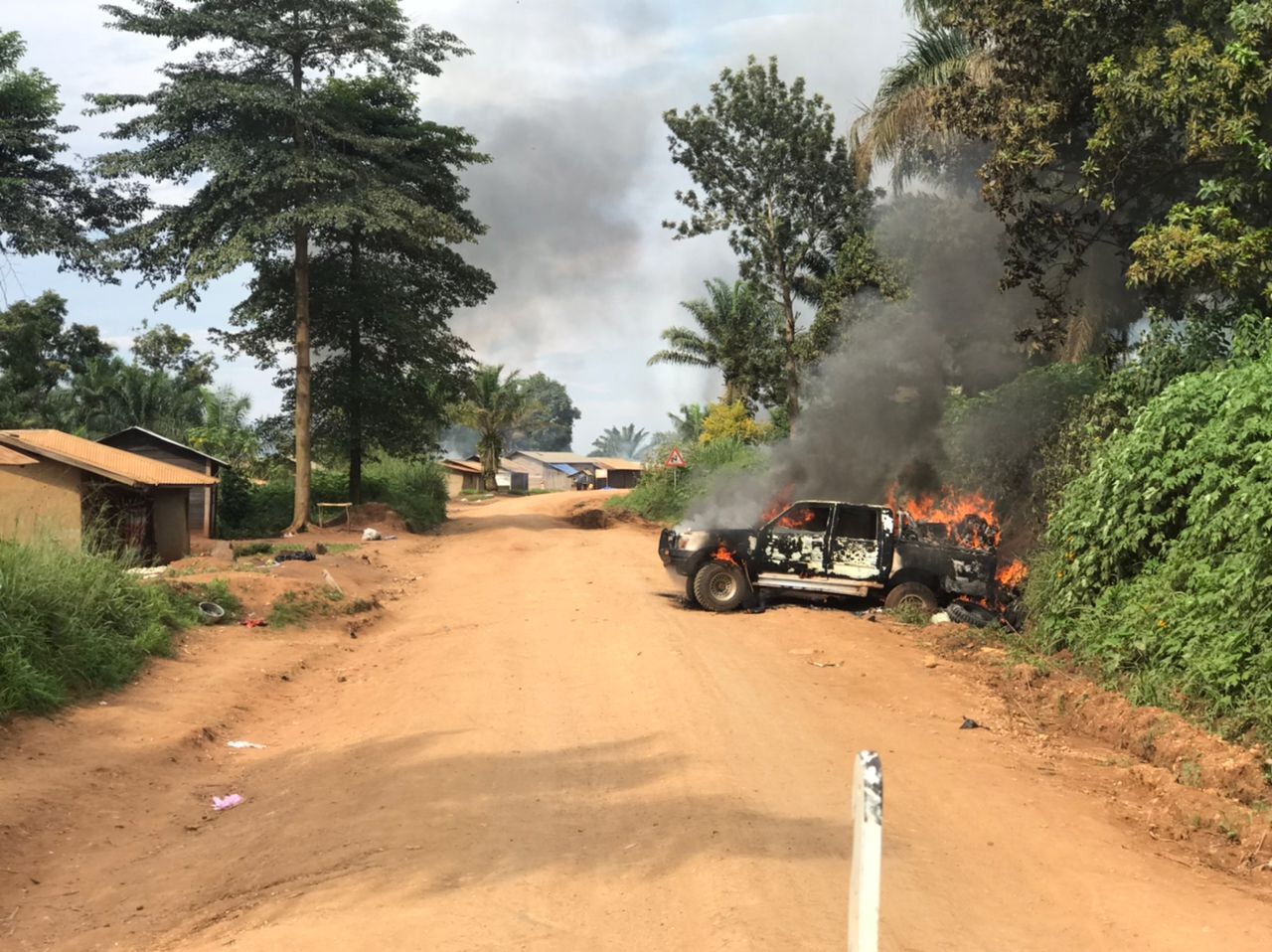Syncretism
Religious pluralism serves peace

On 12 May this year, some 20 armed men burst into a Catholic church in Dablo in the north of Burkina Faso during Sunday Mass. They burned crosses and other sacred objects and then shot dead the priest and five worshippers. The gunmen called on the congregation to change their religion. This was one of about a dozen terror attacks that Islamist extremists carried out in recent months in Burkina Faso. They targeted Christians as well as Muslims.
In Togo’s capital, Lomé, vandals destroyed a number of mosques in July and August 2018. Investigations of the attacks are still going on. The perpetrators tore up copies of the Quran and reduced entire places of worship to smoking ruins. The incidents were widely reported in the media. Faith leaders of all major religions appealed to their followers to stand united against such assaults. Their message was that interreligious conflict must be avoided.
Indeed, no religion calls for violence. They all preach moral standards. Nonetheless, conflicts between faith groups are growing around the world, from Myanmar to the USA. At the same time, African youth increasingly question Christianity and Islam, arguing that these religions were imported. Some people call for return to Africa’s old and ancestral religions.
Protection and punishment by spirits
Since time immemorial, Africa’s polytheistic societies have been shaped by religious pluralism. According to tradition, each community – sometimes even each household – had its own guardian deity. In the case of family deities, the guardians were believed to be ancestors who had changed the course of family history by either an act of bravery or sacrifice. According to traditional African beliefs, the dead are never really dead. The living are surrounded by ancestral spirits, who offer protection, though they may also punish family members for violating traditional norms. Apart from family deities, there are also village deities.
The belief that supernatural forces are responsible for rainfall, flooding and forest wildlife led to the development of animist cults in Africa. Among other things, those cults helped to protect the environment. Respect for “divine” nature meant, for example, that it was unacceptable to clear forests excessively, pollute rivers and water sources or kill more animals than a family needed for food. With the spread of Christianity and Islam in Africa, those values were eroded.
The history of monotheistic religions in Africa dates back to Ancient Egypt. Pharao Akhenaten tried to restrict worship to a single deity. As part of the Roman empire, North Africa later became predominantly Christian. The Arab conquest then made it Islamic. In Abyssinia, present-day Ethiopia, a Jewish community built the first monotheistic temples, but Christian churches followed soon, and Islam spread to the region too. In North Africa and Abyssinia, the three big monotheistic communities mostly, though not always, co-existed peacefully.
Islam spread vigorously through Africa as a result of the Arab conquests of North Africa and Muslim trade caravans. The latter plied routes along the east coast and had contact with the peoples of the Sahel. The rise of Christianity began in the 16th century and went along with slavery and European colonisation. The advance of these two religions in Africa was marked by conflict and bloodshed. As many people wanted to retain their cultic practices and social order, they resisted conversion.
Though Arabs and Europeans, with superior weapons, ultimately won, the traditional religions never quite disappeared. They merged with the new, monotheistic ones. Even today, it is not unusual for Africans to practise ancestor worship in a church or mosque. The combination of religious practices has long helped secure a degree of social peace. Adherents of animist belief systems, for instance, have no problem with the idea of handing over land for the construction of a church or mosque because it does not interfere with the exercise of their religion. Only with the advent of the new fundamentalist movements that reject any kind of syncretism, has Africa begun to experience violent religious extremism.
Back to the roots
A major role in this development is played by the international fundamentalist movements that have proliferated in countries that have historically been centres of Christianity and Islam. They claim to return to the “original” forms of their respective faith. Thanks to foreign funding, such movements have spread in Africa. They vehemently oppose religious tolerance and syncretism even more.
Fundamentalism of different varieties has been growing fast thanks to clever propaganda, charismatic preachers and professionally made videos with a focused message. The rapid rise of Islamists and Evangelicals was facilitated by the precarious circumstances in which many Africans live. After independence, many countries failed to develop in both economic and social terms. The failure of intellectual, economic and political elites to improve people’s lives along with the spread of corruption resulted in an unprecedented moral crisis. Opposition is often suppressed, so many people seek their salvation in religion.
Christian and Muslim fundamentalism is sold in churches and mosques as the solution to problems such as unemployment, poverty and corruption. Money that is mobilised in prosperous Christian or Muslim countries flows into humanitarian aid and funds faith-based education and related projects. The impact is that even some of the most sceptical have abandoned syncretic religious practices. Study grants and grants for travel to the fundamentalists movements’ countries of origin help indoctrinate new followers. The evident personal wealth of fundamentalist leaders, moreover, seems to prove to the faithful that they are on the right track.
Radicalisation through suppression
The extreme rejection of syncretic cults by the fundamentalist movements is undermining peace in society. The conflicts they trigger often become violent. The support the movements enjoy from the political class is relevant too. As in other world regions, religion is used in Africa to claim and exert political power. Politicians and religious leaders forge alliances for mutual benefit. Some movements enjoy the protection of ruling politicians and can thus engage in violence against other religious groups with impunity.
On the other hand, politicians crack down on religious movements that they perceive to threaten their power. This often ends in violent conflict, driving a movement’s most radical supporters underground. Rebel groups like Boko Haram in Nigeria came into being in this way. The killing of their religious leader plunged the entire region into a bloody crisis, so millions of people became refugees.
Widespread suffering could have been prevented had a dialogue-based approach been taken instead of a repressive one. Dialogue is the best way to resolve political crises. A prerequisite, however, is to address an extremist group’s crimes. Victims often find it hard to accept an amnesty for the perpetrators. So the emphasis needs to be on forgiveness, which opens the door to sincere dialogue. Transitional justice – which may, for example, include reparations for victims – facilitates forgiveness. And religion, too, plays an important role in the restoration of social peace. After all, it is love, forgiveness and peace that lead to heaven, not hatred and violence. Radical fundamentalists of whatever belief system need to be reminded of this simple religious truth.
Samir Abi works for Visions Solidaires, a non-governmental development organisation in Togo.
samirvstg@gmail.com













